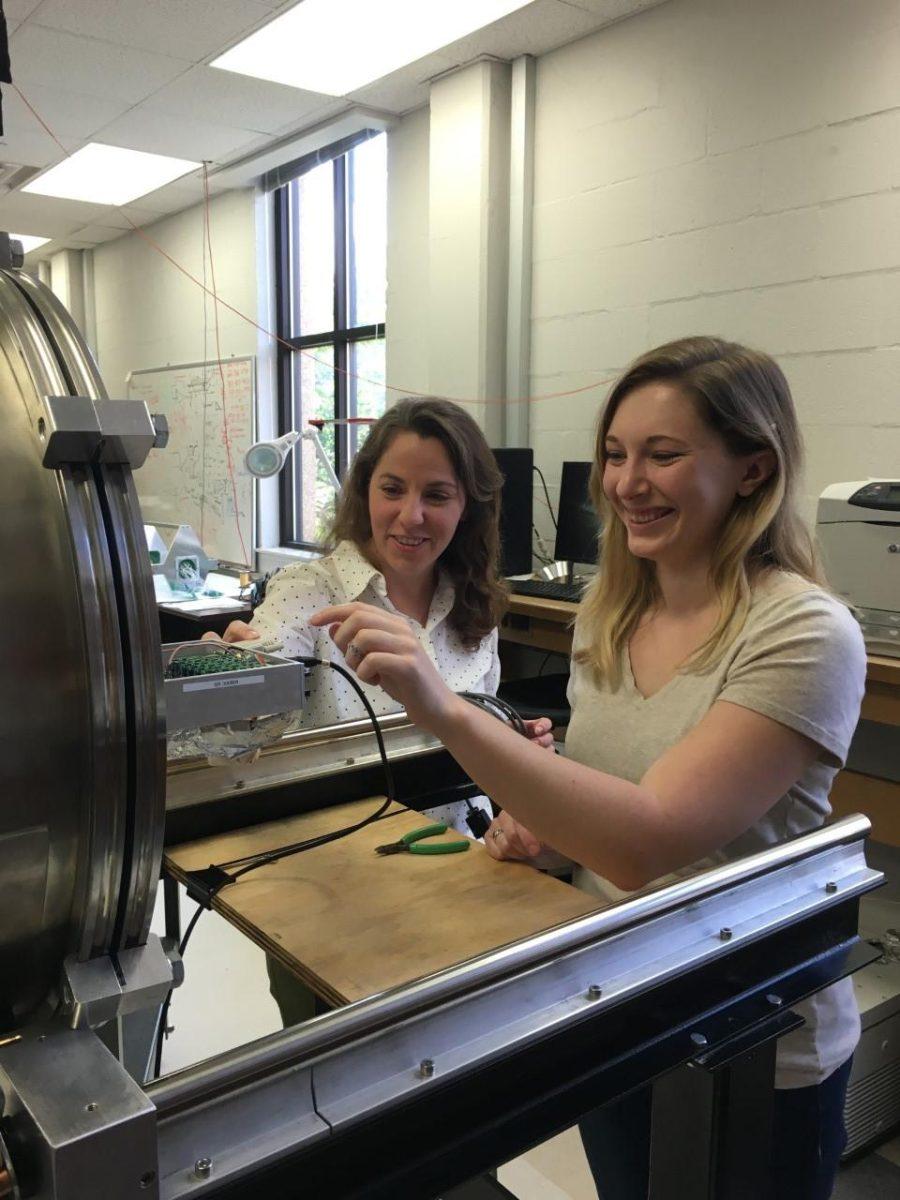Second-year nuclear physics Ph.D. candidate Erin Good is helping expand the boundaries of nuclear physics research.
Good was recently awarded one of seven Stewardship Science Graduate Fellowships from the U.S. Department of Energy National Nuclear Security Administration for her thesis proposal, which involves exploring the origins of elements as they synthesize in stars.
She said her research is exciting because it combines theory with hands-on experience to explore an area with little predetermined knowledge. The motivation to discover something new makes the work interesting, she said.
“We know some stuff, but we don’t know nearly as much as we think we do,” Good said.
Her graduate adviser, physics assistant professor Catherine Deibel, said that while Good’s research focus is important, the real significance of her work comes from the detectors she is developing.
Good’s detectors will be incorporated in a spectrograph that will measure reactions inside a particle accelerator at Florida State University. The spectrograph is used in a process called particle spectroscopy, which measures the reactions of light charged particles to gather information about their nuclear structure and reaction rates, Deibel said.
The spectrograph, including Good’s detectors, will play a key role in helping the United States regain significant nuclear physics research capabilities, Deibel said.
In recent years, federal funding for nuclear physics research has waned, and in 2011 Yale University’s particle accelerator and spectrograph were dismantled. The accelerator-spectrograph pairing was the last of its kind in the United States, Deibel said.
Researchers seeking facilities with the same capabilities were forced to travel to South Africa, Munich, Germany and Osaka, Japan to conduct their research. Now, the spectrograph from Yale’s dismantled accelerator is being installed at FSU, and particle spectroscopy research can resume in the United States, she said.
The research, with the help of Good’s detectors, should be better than ever, Deibel said.
“The improvements that she’s making to the detector systems that go along with the spectrograph will make the device and the methods that we’re using even more powerful than they were in the first iteration of this device when it was at Yale,” Deibel said.
The improvements will allow researchers to collect more targeted isotope data to better understand the reactions that occur in extreme stellar environments. The targeted data will be key in determining how certain isotopes and elements form, she said.
The improvements are coming at the perfect time. Since the 1990s, there’s been a push to better understand nuclear astrophysics and nuclear structure, and the fruits of that labor are starting to be realized, Deibel said.
“It’s a very interesting juxtaposition between a field that’s been around for essentially one hundred years — since Rutherford split the atom — but is now sort of embarking on this new phase,” she said. “We’re able to start accessing a lot more of what’s available or what needs to be accessed to understand stellar synthesis.”
Good said she hopes to continue pursuing research after she completes her doctorate at the University.
While the exact path Good hopes to pursue is undetermined, Deibel said her incredible success as a graduate student is preparing her for a successful future in nuclear physics.
Doctoral student awarded national fellowship for nuclear physics research
April 26, 2016
Second-year PhD student Erin Good and her adviser, physics assistant professor Catherine Deibel, look at one of Good’s detectors Tuesday, April 26.
More to Discover











